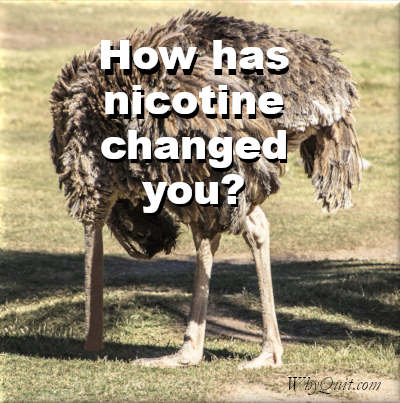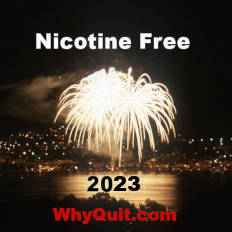
Does nicotine use diminish exploration, discovery and learning?
While nearly all who are slaves to nicotine appreciate its addictiveness, few comprehend how profoundly their addiction has altered their lives.

Prior to becoming calm and comfortable ex-users, few appreciate that instead of nicotine replenishment punctuating life, that their never-ending urge-use cycle constantly interrupted and sliced it into the distance between mandatory feedings. But what about nicotine's impact upon discovery and learning?
A November 26, 2021 study published in Nature is entitled "Chronic nicotine increases midbrain dopamine neuron activity and biases individual strategies towards reduced exploration in mice."
Reduced exploration?
According to the study, "Long-term exposure to nicotine alters brain circuits and induces profound changes in decision-making strategies, affecting behaviors both related and unrelated to drug seeking and consumption."
The study briefly reviews how nicotine use not only leads to reinforcement but also to craving, impulsivity and lack of self-control over intake, affecting personality traits and behaviors, including emotional changes reflected in heightened levels of stress and anxiety.
By way of a rather complex mouse study, it suggests the possibility that nicotine dependence forces users to pursue the certainty that inhaling nicotine will produce a burst of dopamine, satisfying gradually escalating wanting for more, instead of the uncertainty that exploring the world around them will result in stimulating their dopamine pathways.
As the study explains it, "Among the components of decision-making, the explore/exploit trade-off is of particular interest. Exploitation refers to choosing the option that seems, based on the history of rewards, the optimal choice. However, when faced with two alternatives, one with low and one with high probability of reward, animals do not purely exploit, they also choose the less likely rewarded option a significant portion of the time."
The authors note that "In the context of exploration, choosing an option with less likelihood of immediate reward is essential to gather information about unknown or uncertain outcomes in a changing environment. As new information is crucial for learning and behavioral adaptation, exploration is central to the emergence and organization of behaviors."
While the study found that "mice chose the less likely rewarded option a significant portion of the time, consistent with balancing exploitation and exploration in their choice behavior,” not so when mice received nicotine infusions.
They found that chronic nicotine modifies the decision-making strategy of mice by biasing choices towards those most likely to stimulate the release of dopamine (exploitation).
Is that next nicotine fix your highest priority each day? For nearly three decades, it certainly was mine.
If dependent upon nicotine, ask yourself, what would it be like to be "you" again, to invite life to determine where you go, who you meet, how long you stay, and what you do?
While the neo-nicotine industry obviously wants to keep you hooked until the day you die, three things happen within 72 hours of abruptly ending use. Your body becomes 100% nicotine-free, your brain has no choice but to begin restoring natural sensitivities, and you move beyond peak withdrawal.
And there’s only one rule. Recovery is all or nothing. Brain scan studies teach us that just one puff of nicotine and up to half of our dopamine pathway receptors become occupied by nicotine. Baby steps, just one hour and challenge at a time.
Yes, there was always only one rule, that while one puff would be too many and thousands wouldn't be enough, that it's impossible to fail so long as all nicotine remains on the outside. Yes, just one rule, to Never Take Another Puff!


